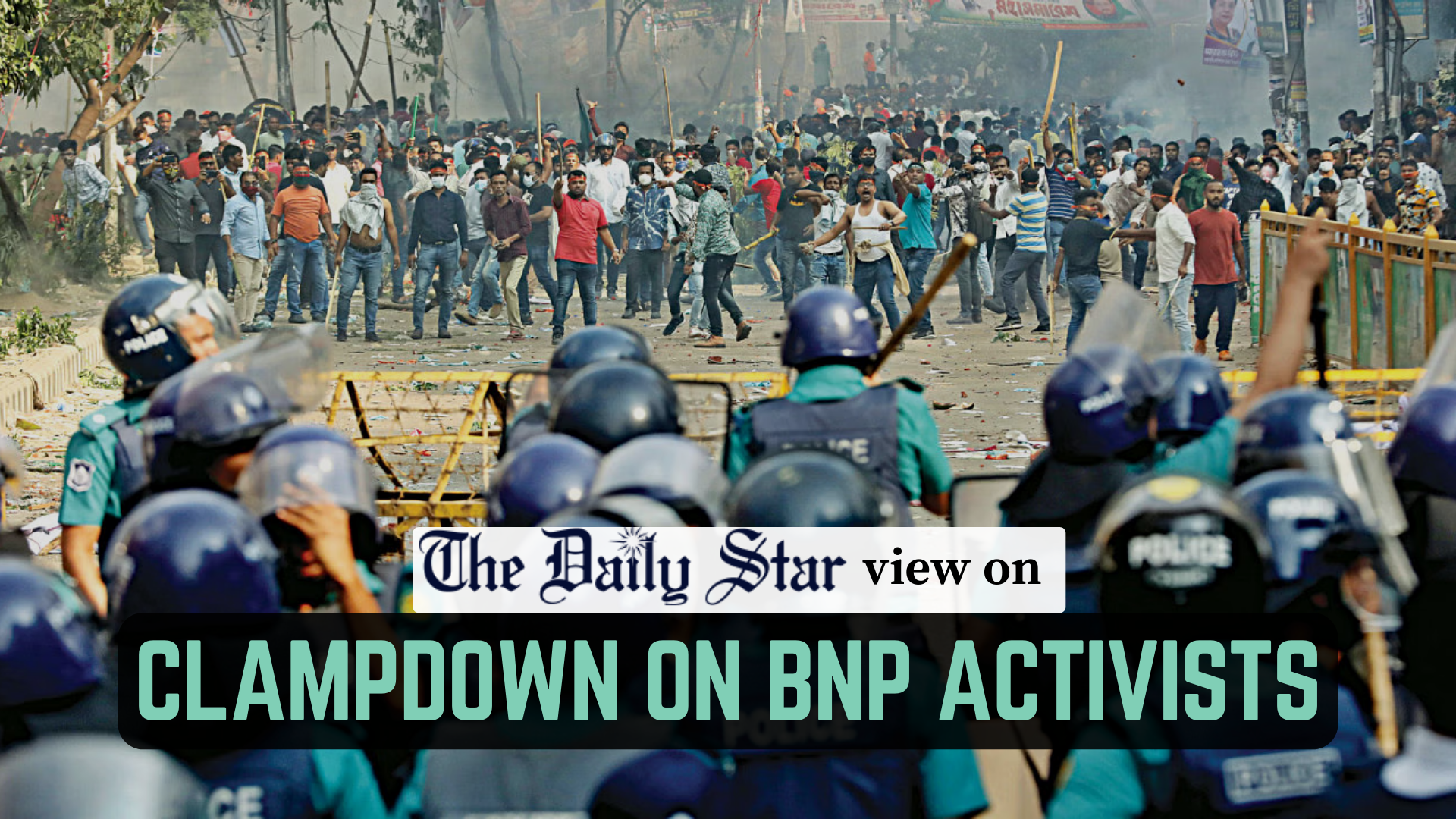Are the ‘ghost’ cases fooling anyone?

We have noted with alarm the intensifying crackdown on the opposition, with mass arrests of BNP leaders and activists all over the country in the lead-up to the general election. With over 9,000 people arrested in less than two weeks, including the party's top brass, the prisons are now overflowing with political prisoners, housing more than double their capacities. Against this backdrop, a recent report by this daily highlights how 'ghost' cases are being filed indiscriminately against expats, journalists, teachers and other professionals, who claim to have no connection to the events unfolding on the streets in Bangladesh. It appears that beyond BNP activists and leaders, law enforcement agencies are now targeting those who are thought to be remotely sympathetic to the opposition party, with false or trumped-up charges filed against them.
For instance, a case filed against Alamin Kazi says he hurled crude bombs at police and carried out subversive activities with BNP men in Shalikha's Talkhari area in Magura at around 2am on November 3. However, the expatriate businessman has not been in the country for the past nine months, and was fast asleep in his residence in Kuala Lumpur when the crime he was accused of was committed. Similarly, Rajib Shikder, who left the country in September, was accused of hurling bombs in Magura's Mohammadpur upazila. These striking anomalies raise serious questions about the authenticity of the police reports and the motivation behind them. While Alamin and Rajib are lucky that they were out of the country and have documents to prove so, how are others, similarly falsely accused, supposed to prove their innocence when it is their word against that of law enforcers?
While the government claims that the arrests are not politically motivated, the discrepancies outlined above paint a different picture. With law enforcers reportedly making lists of BNP activists and sympathisers at the grassroots level, we are seriously concerned about the possibility of gross violation of human rights and the misuse of the legal system to harass and suppress citizens through filing of such "ghost" cases. The ruling Awami League has consistently claimed that it will ensure a free and fair election under its government, but the use of state machinery to target, harass and persecute the opposition suggests that such a scenario is not only improbable, but impossible.
Under such grave circumstances, we call upon the government to ensure the rule of law and protection of human rights ahead of the election. Such ghost cases may end up benefiting the Awami League in the short run, but they will end up irreparably damaging the credibility of crucial state institutions and the country's democratic future.



 For all latest news, follow The Daily Star's Google News channel.
For all latest news, follow The Daily Star's Google News channel. 

Comments